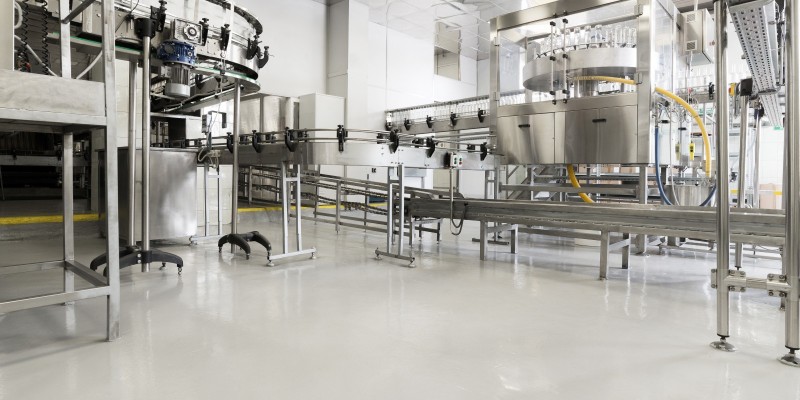Concrete floors are commonly used in food processing and manufacturing plants due to their durability, versatility, and compatibility with industry regulations. Here are some key considerations regarding concrete floors in these settings.
Food Safety: Concrete floors can be designed and finished to meet stringent food safety standards. The surface should be smooth, non-porous, and easy to clean to prevent the accumulation of dirt, bacteria, or other contaminants. Specialized coatings or sealants may be applied to enhance the floor's resistance to chemicals, oils, and spills.
Hygiene and Sanitation: Maintaining proper hygiene is crucial in food processing and manufacturing facilities. Concrete floors can support good sanitation practices by being resistant to water, chemicals, and cleaning agents. Regular cleaning and sanitization procedures, including steam cleaning or pressure washing, can help maintain a clean and germ-free environment.
Slip Resistance: Safety is paramount in these industrial environments, especially where liquids, oils, or food particles may be present on the floor. Concrete floors can be treated with slip-resistant coatings or textured finishes to minimize the risk of slips, trips, and falls.

Impact and Wear Resistance: Food processing and manufacturing plants often involve heavy machinery, carts, and equipment that may cause impact or abrasion on the floor surface. Concrete floors are durable and can withstand heavy loads and repeated traffic without significant damage, making them suitable for such industrial settings.
Thermal Stability: Some food processing and manufacturing processes involve extreme temperature variations or exposure to hot liquids. Concrete has good thermal stability and can withstand high temperatures without warping or degrading.
Maintenance and Longevity: Proper maintenance, including regular inspections and repairs of cracks or damaged areas, is essential to ensure the longevity of concrete floors. Routine maintenance tasks may include resealing, reapplying coatings, or polishing with floor grinding tools such as resin bond tooling and metal bond tooling to preserve the integrity of the floor surface.